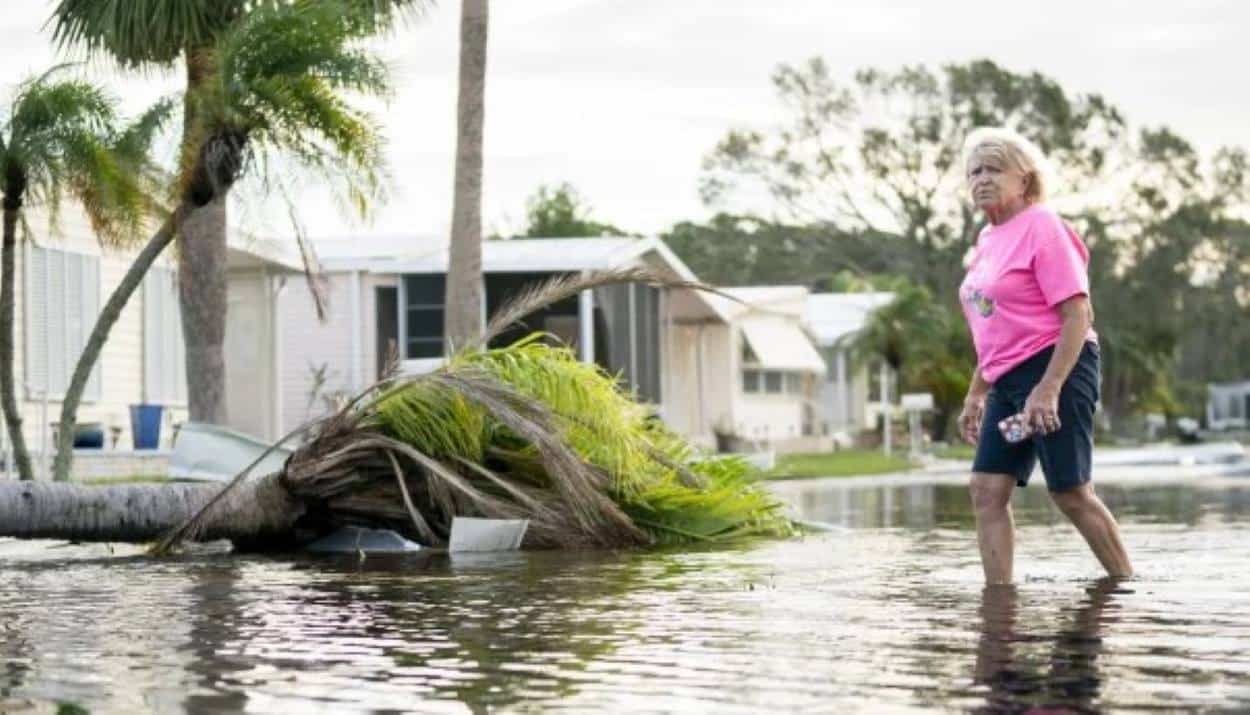Hurricane Milton wreaked havoc in Florida, claiming at least 10 lives as tornadoes triggered by the storm caused extensive damage across the state.
The Tampa Bay area experienced significant flooding, with large areas submerged. Late Wednesday, the hurricane carved a destructive path before moving to the Atlantic. It left behind roads cluttered with fallen trees and power lines, resulting in approximately three million homes and businesses losing power.
It seems tornadoes were the primary cause of fatalities rather than floodwaters. “It was pretty scary,” said Susan Stepp, a 70-year-old Fort Pierce resident, where a tornado killed four people in a senior living community on Wednesday. “They did find some people just outside dead, in a tree,” she added, expressing regret over the lack of evacuation.
Local authorities reported five deaths in St. Lucie County, three in Volusia County, and two in St. Petersburg. Homeland Security Secretary Alejandro Mayorkas attributed these deaths directly to the tornadoes. In Polk County, a road crew member died after being struck by a colleague while clearing a fallen tree.
“The storm was significant, but thankfully, this was not the worst-case scenario,” Florida Governor Ron DeSantis stated at a news conference. He expressed relief that the state managed to avoid the catastrophic devastation officials feared.
Milton, a major Category 3 hurricane, struck the Florida Gulf Coast with devastating winds. This occurred just two weeks after Hurricane Helene hit, causing 237 fatalities in the United States.
The National Weather Service issued an unprecedented 126 tornado warnings for the state on Wednesday, marking a record for the most warnings issued in a single day for Florida since records began in 1986. Rescue operations continued into Thursday evening as workers evacuated residents stranded by floodwaters in Clearwater, near Tampa.






